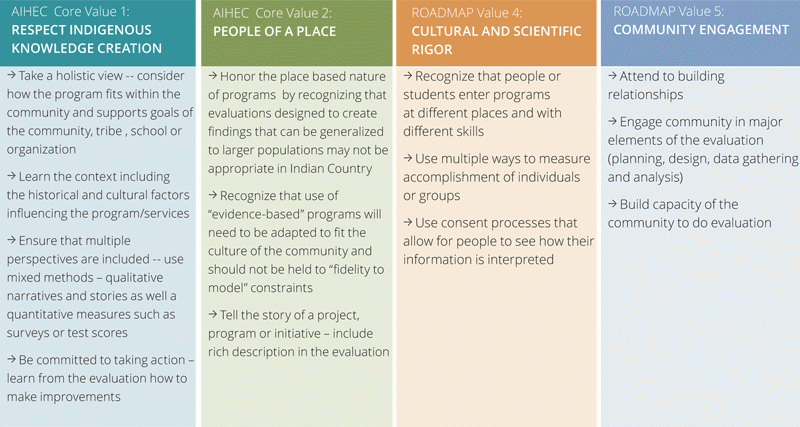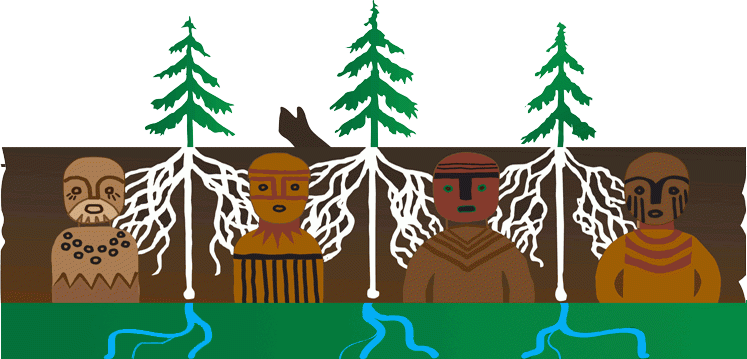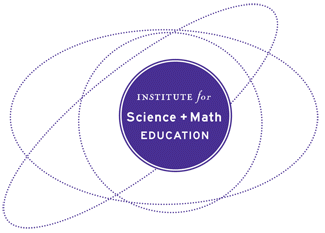Brief 02 - Indigenous Evaluation & Native Student Success
Written by Joan LafranceIndigenous evaluation is not just a matter of accommodating or adapting majority perspectives to American Indian contexts. Rather, it requires a total reconceptualization and rethinking. It involves a shift in worldview. Over the past few years, Indigenous researchers and evaluators are redefining the very practices of evaluation to be responsive to the values of Indigenous communities and their ways of knowing. Given the pressure of high stakes testing and the dictates of Western evaluation guidelines for educational evaluations in the era of No Child Left Behind, it is important that Native American educators learn about the growing movement to redefine evaluation practice to incorporate Indigenous ways of knowing and assessing merit and worth.
Often educational evaluations of schools and programs in Native American communities and Native students' performance report depressing and negative findings with little consideration of community or tribal contexts or Native students' historical experience with American schooling. Over the years of working with tribal colleges, the American Indian Higher Education Consortium (AIHEC) found that staff & faculty distrust the role of outside evaluators noting that they do not understand Indian country.
This research brief explores the growing literature on Indigenous research and evaluation and describes ways in which it influences evaluation practice.
Evaluation is about learning from thoughtful reflection and assessment – values that are central to our mission as educators.

When we develop a program or project, we make assumptions about why the activities we do as part of the program will accomplish our goals. This relationship between our assumptions and the outcomes we expect is our program's model.
Evaluation is the way in which we test this model. By evaluating, we will:
- Learn if the assumptions we made, such as a certain approach to teaching reading, will result in better reading comprehension, are correct,
- Discover if the reading approach works better for some students rather than others,
- Understand the challenges faced in implementing the new reading program,
- Use our learning to improve the program.
- Determine if the new approach to reading should be expanded to other classrooms or schools.
Indigenous Theory & Evaluation
Indigenous knowledge cannot be standardized (1); however, Cora Weber-Pillwax, a Métis researcher, has described principles that should guide methods based on Indigenous ways of knowing (2).
The first, based on the recognition of the interconnectedness of all living things, is the mandate for respect, which goes beyond knowing rituals and practices and protocols. It is “believing and living that relationship with all forms of life, and conducting all interactions in a spirit of kindness and honesty” (2, p. 41).
Respecting relationships require a motivation to contribute to the community and a belief that as an evaluator/ researcher, you will benefit only to the degree that your work benefits others. She explains that the foundation of research is the lived indigenous experience, and this must ground the work, not theories or ideas that are brought to bear on this experience.
Theories will “spring from the people themselves—theories that explain the many facets and connections of our individual and collective lives” (2, p. 42–43).
Future Research
The American Indian Higher Education Consortium is currently involved in a study of the use of their framework Indigenous Evaluation Framework: Telling our Story in Our Place to evaluate programs at three tribal colleges (3). More studies are needed to capture the stories from communities who are engaged in doing evaluations that honor Indigenous ways of knowing and respect local cultural values.
Only after examining the ways in which communities and tribes give voice and meaning to Indigenous evaluation will we fully understand its value and power to reverse the legacy of misuse of and mistrust of evaluation.
As our knowledge of how Indigenous ways of knowing and assessing merit and worth grows, we will make significant contributions to the field of evaluation, which is increasingly interested in honoring and understanding cultural applications.

Decolonization Of Research And Evaluation
In her foundational work on decolonizing research, Maori educator, Linda Tuhiwai Smith, describes the imperialism inherent in Western research and offers a framework for a research agenda that honors and builds the cultural life of a people4.
Margaret Kovach notes that knowledge is neither acultural nor apolitical, and there is a need to recognize distinctly Indigenous ways of knowing that influence one’s approach to doing research and by extension, evaluation (1).
Shawn Wilson defines research as ceremony and outlines an Indigenous approach based on relational accountability. He argues that research and evaluation methods need to be understood within the community context (relate to the community) and demonstrate respect, reciprocity, and responsibility, which makes them accountable (5).
Critical Reflections
→ How does your program engage in evaluation?
→ Does it reflect an Indigenous theory?
→ How does your program work to decolonize the lives and lived spaces of Native students?
→ How does evaluation help you tell your story of change?
Indigenous Evaluation In Practice
Indigenous Evaluation Framework: Telling our Story in Our Place (3): In 2002, AIHEC began a five-year project to define an Indigenous framework for evaluation. After conducting extensive focus groups across a number of tribal communities, a training curriculum was developed for educators in tribal colleges and reservation K-12 schools. Recognizing the role of research and evaluation as knowledge creation, the authors of the AIHEC evaluation framework note that an Indigenous world view is fundamental to informing an Indigenous approach. An indigenous worldview embodies the notion that all things are living, spiritual entities and interrelated, including knowledge.
Also, there is a profound sense of place woven throughout native thought (6,7). It is this sense of place that gives rise to a tribal culture.
The Roadmap for Collaborative and Effective Evaluation in Tribal Communities was developed by the Child Welfare Research & Evaluation Tribal Workgroup for the Children’s Bureau (8). The seven values align closely with the core values of the Indigenous Evaluation Framework. Below are a sample of the core values described in each of the frameworks.
→ See below for the links to the downloadable PDFs of each framework and the References section for website address.

References
1. Kovach M. Indigenous methodologies; Characteristics, conversations, and contexts. Toronto, Ontario, Canada: University of Toronto Press; 2010.
2. Weber-Pillwax C. Indigenous research methodology: Exploratory discussion of an elusive subject. JET. 1999; 33(1): 31-45.
3. LaFrance J, Nichols R. Indigenous evaluation framework: Telling our story in our place and time. Alexandria (VA): American Indian Higher Education Consortium (AIHEC); 2009.
4. Smith LT. Decolonizing methodologies: Research and indigenous peoples. London (UK): Zed Books Ltd; 1999.
5. Wilson S. Research as ceremony: Indigenous research methods. Blackpoint (NS): Fernwood Publishing; 2008.
6. Basso KH. Wisdom sits in places: Landscape and language among the Western Apache. Albuquerque (NM): University of New Mexico Press; 1996.
7. Cajete G. Native science: Natural laws of interdependence. Santa Fe (NM): Clear Light Publishers; 2000.
8. Childwelfare Research & Evaluation Tribal Workgroup. A roadmap for collaborative and eff ective evaluation in tribal communities. Children’s Bureau, Administration for Children and Families, U.S. Department of Health and Human Services. Washington (DC); 2013. http://www.acf. hhs.gov/sites/default/fi les/cb/tribal_roadmap.pdf
FOR MORE INFORMATION:
- IET Brief 3 Indigenous Child Development & Identity
- American Indian Higher Education Consortium: IndigenousEvaluation Framework: Telling our Story in Our Place
- U.S. Dept of Health & Human Services, Children’s Bureau: TheRoadmap for Collaborative and Effective Evaluation in TribalCommunities
CONNECT WITH US ON SOCIAL MEDIA
- Facebook- Indigenous Education Tools
- Twitter- @indedtools; #indigenousevaluation; #nativeed; #ourstoryourplace
Indigenous Education Tools is a part of the Building Capacity And Cultivating Innovation project (BCCI). BCCI is designed to develop resources and practices that will have exponential impacts on efforts to improve Native student success across a variety of sectors.
Indigenous Education Tools / BCCI Project Contacts:
Megan Bang- mbang3@uw.edu
Charlene Nolan- nolanc3@uw.edu
Gabriel de Los Angeles- kender20@uw.edu



